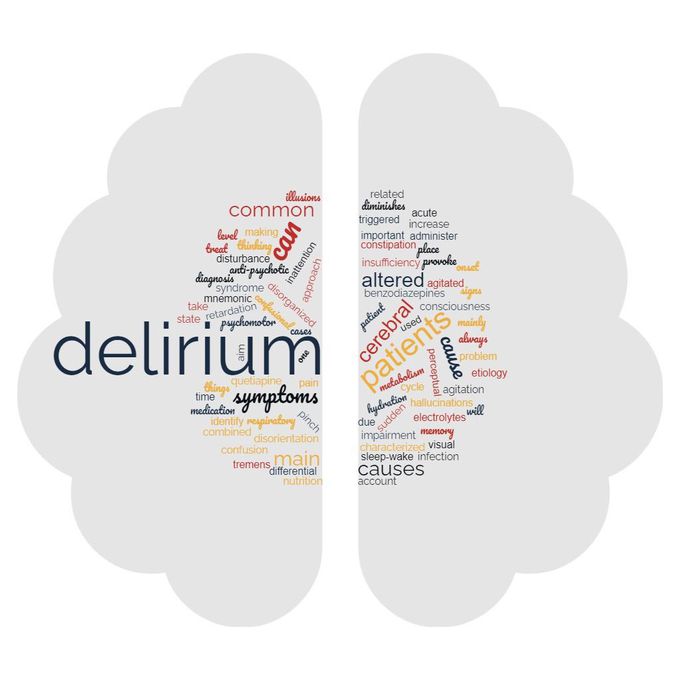


Delirium
Delirium or acute confusional state is a syndrome that is always related to a cerebral problem: it can be triggered by any cause that diminishes cerebral metabolism. Its main causes are (PINCH ME mnemonic): P – Pain I – Infection N – Nutrition C – Constipation H – Hydration M – Medication E – Electrolytes A combined etiology is very common in cases of delirium. One of the most important things that we should take into account when making a differential diagnosis is that delirium is characterized by a SUDDEN ONSET of its symptoms. The most common symptoms and signs of delirium are: altered level of consciousness and inattention, altered sleep-wake cycle, time and place disorientation, disorganized thinking, perceptual disturbance (illusions and hallucinations, mainly visual), psychomotor agitation or retardation and memory impairment. When we approach these patients, we should aim to identify the main cause of the delirium and treat it. If the patient is too agitated, we can administer an anti-psychotic, such as quetiapine. Benzodiazepines can ONLY be used in patients with delirium tremens, as they will increase the confusion and provoke respiratory insufficiency in patients with delirium due to other causes.

